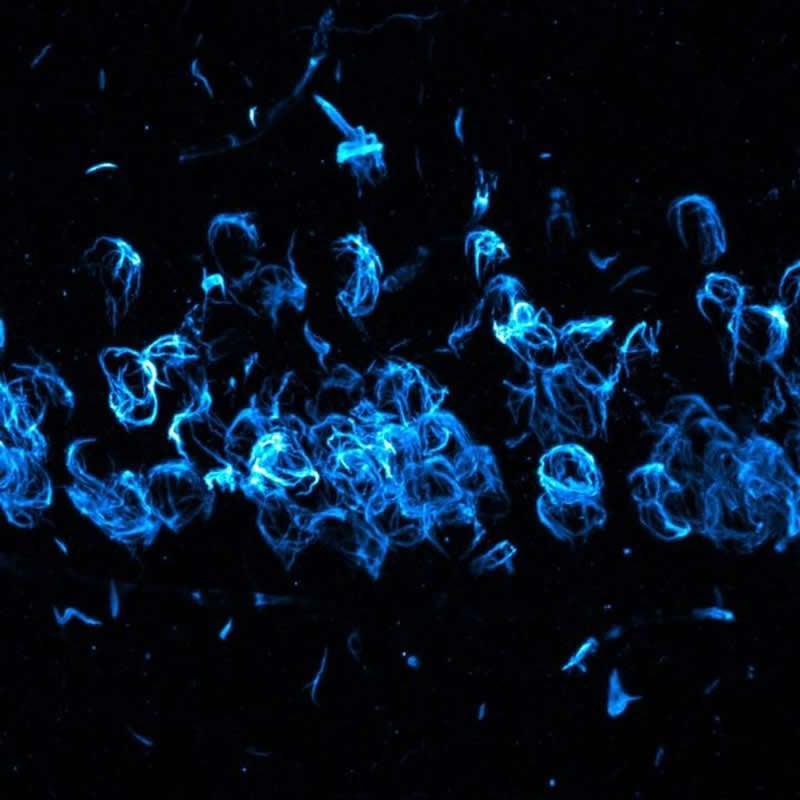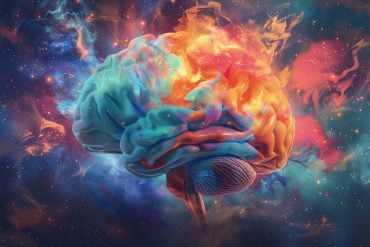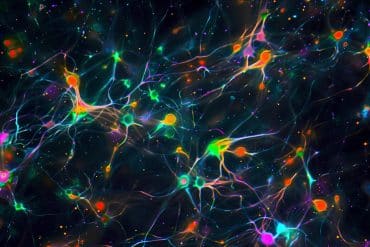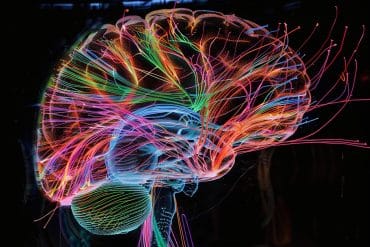Summary: New model could inform the development of new treatments for Lewy body diseases by targeting alpha-synuclein DNA repair mechanisms.
Source: Oregon Health and Science University
A small protein previously associated with cell dysfunction and death in fact serves a critical function in repairing breaks in DNA, according to new research led by scientists at Oregon Health & Science University.
The discovery, published today in the journal Scientific Reports, marks the first demonstration of the role that alpha-synuclein plays in preventing the death of neurons in brain diseases such as Parkinson’s, which affects 1.5 million people in the United States alone.
The findings suggest that it may be possible to design new therapies to replace alpha-synuclein’s function or boost it in people with Parkinson’s disease and other neurodegenerative disorders.
Aggregates of alpha-synuclein, known as Lewy bodies, have long been connected to Parkinson’s and other forms of dementia.
The study published today casts a new light on that process.
The findings suggest that Lewy bodies are problematic because they pull alpha-synuclein protein out of the nucleus of brain cells. The study, which examined the cells of living mice and postmortem brain tissue in humans, reveals that these proteins perform a crucial function by repairing breaks that occur along the vast strands of DNA present in the nucleus of every cell of the body.
Alpha-synuclein’s role in DNA repair may be crucial in preventing cell death. This function may be lost in brain diseases such as Parkinson’s, leading to the widespread death of neurons.
“It may be the loss of that function that’s killing that cell,” said senior author Vivek Unni, M.D., Ph.D., an associate professor of neurology in the OHSU School of Medicine.
Researchers found that the alpha-synuclein protein rapidly recruited to the site of DNA damage in the neurons of mice. In addition, they found increased double-strand breaks in the DNA of human tissue and mice in which the protein was clumped together in the form of Lewy bodies in the cytoplasm surrounding the cell’s nucleus. Taken together, the results suggest that alpha-synuclein plays a crucial role in binding broken strands of DNA within the cell’s nucleus.

Put another way: If alpha-synuclein are workers in a factory, it’s akin to all of them gathering for an extended coffee break and leaving the machinery unattended.
Unni, who also sees patients in the OHSU Parkinson Center and Movement Disorders Program, said he hopes that these findings lead to the development of methods to deliver alpha-synuclein proteins into the nucleus of cells or designing methods to replace its function.
“This is the first time that anyone has discovered one of its functions is DNA repair,” Unni said. “That’s critical for cell survival, and it appears to be a function that’s lost in Parkinson’s disease.”
Funding: The work in this study was supported in part by National Institutes of Health grants NS102227, NS096190, NS069625, NS061800, AG024978, AG008017, and T32AG055378; a National Science Foundation graduate research fellowship, the Kinnie Family Foundation, the Oregon Partnership for Alzheimer’s Research, and the American Parkinson Disease Association.
Source:
Oregon Health and Science University
Media Contacts:
Erik Robinson – Oregon Health and Science University
Image Source:
The image is credited to Oregon Health & Science University.
Original Research: Open access
“Alpha-synuclein is a DNA binding protein that modulates DNA repair with implications for Lewy body disorders”. Allison J. Schaser, Valerie R. Osterberg, Sydney E. Dent, Teresa L. Stackhouse, Colin M. Wakeham, Sydney W. Boutros, Leah J. Weston, Nichole Owen, Tamily A. Weissman, Esteban Luna, Jacob Raber, Kelvin C. Luk, Amanda K. McCullough, Randall L. Woltjer & Vivek K. Unni.
eNeuro. doi:10.1038/s41598-019-47227-z
Abstract
Alpha-synuclein is a DNA binding protein that modulates DNA repair with implications for Lewy body disorders
Alpha-synuclein is a presynaptic protein that forms abnormal cytoplasmic aggregates in Lewy body disorders. Although nuclear alpha-synuclein localization has been described, its function in the nucleus is not well understood. We demonstrate that alpha-synuclein modulates DNA repair. First, alpha-synuclein colocalizes with DNA damage response components within discrete foci in human cells and mouse brain. Removal of alpha-synuclein in human cells leads to increased DNA double-strand break (DSB) levels after bleomycin treatment and a reduced ability to repair these DSBs. Similarly, alpha-synuclein knock-out mice show increased neuronal DSBs that can be rescued by transgenic reintroduction of human alpha-synuclein. Alpha-synuclein binds double-stranded DNA and helps to facilitate the non-homologous end-joining reaction. Using a new, in vivo imaging approach that we developed, we find that serine-129-phosphorylated alpha-synuclein is rapidly recruited to DNA damage sites in living mouse cortex. We find that Lewy inclusion-containing neurons in both mouse model and human-derived patient tissue demonstrate increased DSB levels. Based on these data, we propose a model whereby cytoplasmic aggregation of alpha-synuclein reduces its nuclear levels, increases DSBs, and may contribute to programmed cell death via nuclear loss-of-function. This model could inform development of new treatments for Lewy body disorders by targeting alpha-synuclein-mediated DNA repair mechanisms.






